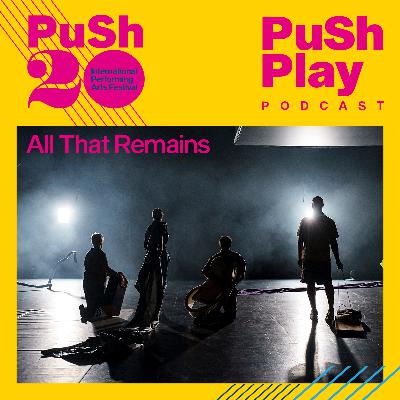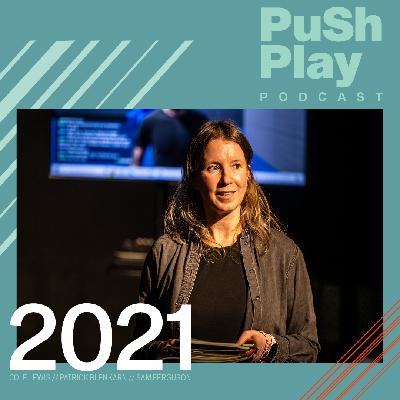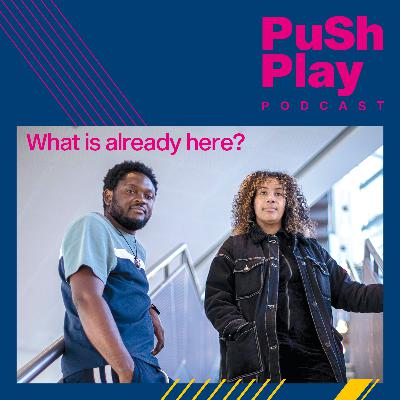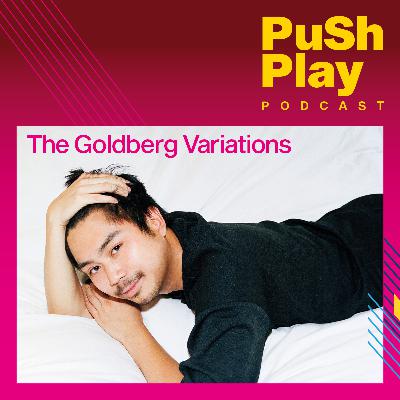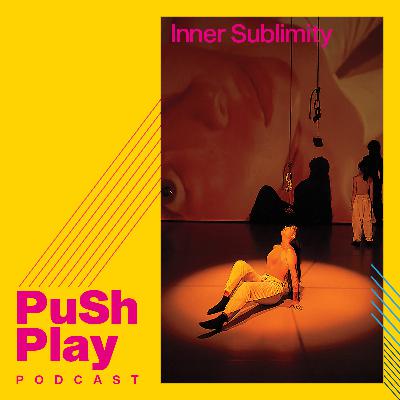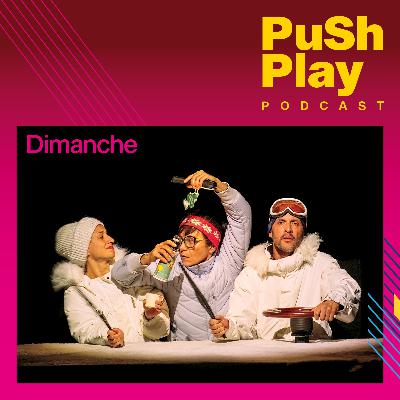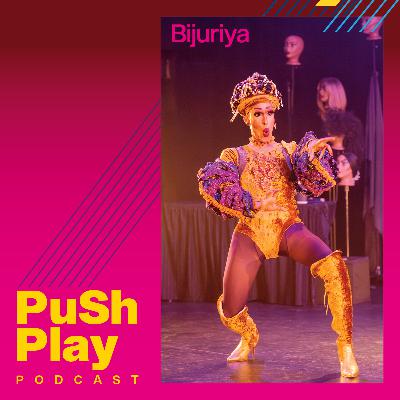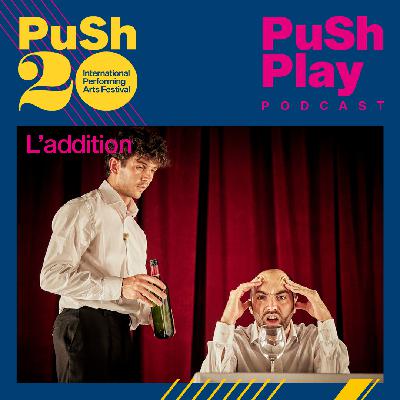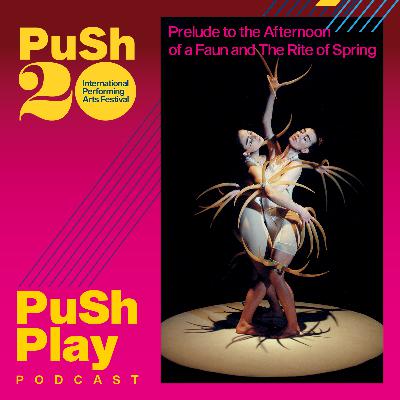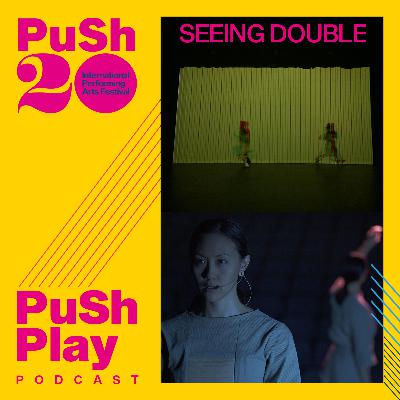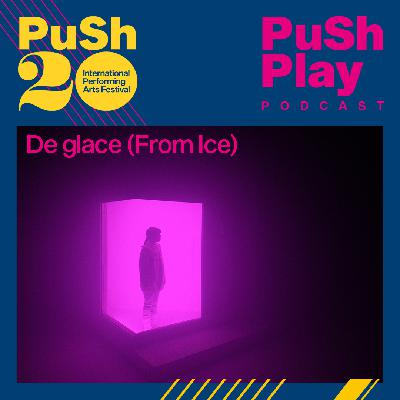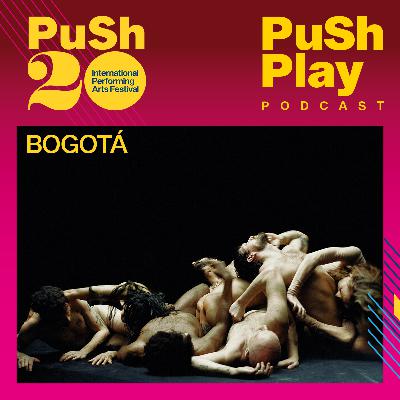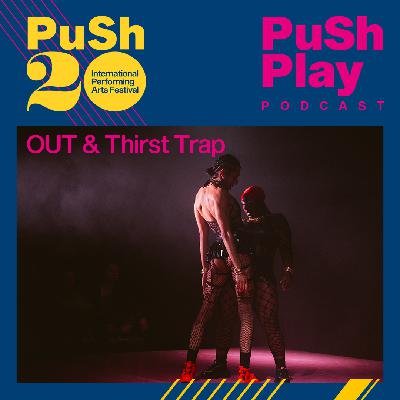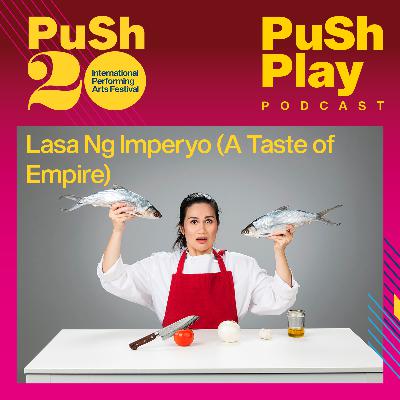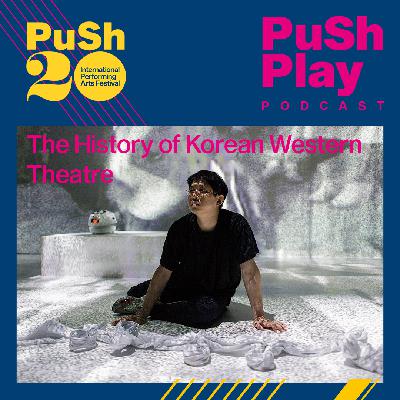Ep. 45 - Cultivating Disorientation (All That Remains)
Description
Gabrielle Martin chats with Mirko Guio, whose work, All That Remains, will be presented at the 20th PuSh International Performing Arts Festival. You can catch All That Remains on January 23 and 24 at SFU Goldcorp Centre for the Arts.
Show Notes
Gabrielle and Mirko discuss:
-
Where are you from and why is that important?
-
What does it mean for your show, All That Remains, to be an "urgent call to consciousness"?
-
How does being onstage affect people's internal responses?
-
How do you work in the devising process?
-
What does it mean to be in a state of "sensitive listening"?
-
What did your collaboration with a sculptor, Soren, entail?
-
What are the parameters you offer your students based on Soren's work?
-
What is your practice of local collaboration?
-
How does "All That Remains" fit into your larger practice?
-
How do you devise "systems of responsiveness"?
-
What is the place of your own body in your current artistic practice?
About Mirko Guido
Mirko Guido (b. Italy) works with dance and choreography between theatres, art galleries/museums, and public spaces - spanning over performances, installations, intra-disciplinary research projects, and publications. All works are a continual negotiation of boundaries — between body, space and materialities, between individual and collective experience, between certainty and ambiguity. Each project operates as a physical, material and intellectual inquiry into choreography as a system of responsiveness, guiding the attention towards the co-existence of multiple processes and materialities. As a dancer he worked in several dance companies, including the Cullberg Ballet, and with a great variety of choreographers, whom have provided him with a wide range of embodied perspectives on dance, from Mats Ek, Crystal Pite, Johan Inger to Deborah Hay, Benoît Lachambre, Cristina Caprioli and Tilman O'Donnel, passing by Paul Lighgoot & Sol Leon, Itzik Galili, Alexander Ekman, Rafael Bonachela, Jo Strømgren, Stephan Thoss among many others. As a choreographer Mirko he has toured his productions across Europe, including Athens dance festival (Greece), Festival La Becquée (France), Festival MAP/P E-motional (Portugal), Teatri di vita (Italy), Dance Station (Serbia), Weld and Dansens Hus (Sweden), Bora Bora and ARoS Art Museum (Denmark), SPEL - The State Gallery of Contemporary Art, Nicosia (Cyprus) among many others. His artistic processes have been supported by major choreographic centres such as Summer Studios Rosas, Work Space Brussels; Uferstudios Berlin; PACT Zollverein; MDT Stockholm to mention but a few. Mirko holds a master's degree in New Performative Practices from DOCH / Stockholm University of the Arts, and today he's based in Aarhus, Denmark, and is an in-house artist at Bora Bora – Dance and Visual Theater.
Land Acknowledgement
This conversation was recorded on the unceded, stolen and ancestral territories of the Coast Salish Peoples: the xʷməθkʷəy̓əm (Musqueam), Skwxwú7mesh (Squamish) and Səl̓ílwətaɬ (Tsleil-Waututh), colonially known as Vancouver. Mirko joins the conversation from Denmark.
It is our duty to establish right relations with the people on whose territories we live and work, and with the land itself.
Show Transcript
Hello and welcome to Push Play, a Push Festival podcast featuring conversations with artists who are pushing boundaries and playing with form. I'm Gabrielle Martin, Push's director of programming, and today's episode highlights spaces of liminality and devising systems of responsiveness.
I'm speaking with Mirko Guido, artist behind All That Remains, which is being presented at the Push Festival, January 23rd and 24th, 2025. This choreographic work unfolds across a stage scattered with industrial debris and organic matter, where performers engage with their sculptural surroundings in a corporeal topography that collapses the boundary between inner landscapes and external realities.
A richly textured work at the crossroads of dance, installation, and sound performance, this piece asks us how we, as a species fallen out of sync with our environment, can open up new potentialities of relation and becoming.
Mirko Guido is an in-house artist at Bora Bora Dance and Visual Theatre. He holds a master's degree in new performative practices from DOC, Stockholm University of the Arts, and is a former dancer with the Kalberg Ballet.
Mirko Guido's distinctive choreographic lens, shaped by a diverse history of working in theatres, galleries, and public spaces, brings to the fore a dynamic engagement with today's anthropocentric existential dilemmas.
Here's my conversation with Mirko. Just before we hit record, we were acknowledging that it's so easy to get caught up in discussions around all the logistical pieces, so it's nice to actually, in the lead-up to the festival, sit down and really get to talk about the work itself and your practice, which is a real treat for me, and I know it's a treat for our listeners as well.
I really appreciate it, because I think, as you were saying, we get so sometimes overwhelmed by the practicalities, and that you... and their organization of making this happen. So to give space and time for us to connect on another level and talk about the practices and the work and also give the possibility to people to have another entry to the work.
I think it's a great initiative. So thank you. Thank you. And we're going to get right into it shortly. I do want to acknowledge that I am in this conversation today on the stolen traditional and ancestral territories of the Coast Salish peoples.
So these are the Musqueam, Squamish, and Tsleil-Waututh. I am a settler on these lands, and part of my responsibility as a settler is ongoing thinking about the implications of that. And those who've been listening to this podcast series will have heard me reference the Yellowhead Institute, which is an incredible resource for thinking indigenous perspective on policy and perspectives on policy that are affecting indigenous peoples today.
And they have a wonderful online course around Land Back and their red paper on the Land Back movement. And I think it's really important that just to talk about the roots of the Land Back movement, and this is something I'm educating myself on right now, and just really being clear that despite reconciliation rhetoric of contemporary politicians that Canada is still a colonial country.
And that over the years through policy, law, and interpretation, indigenous people and their authority have been attacked by land tenure and economic systems meant to benefit non-indigenous Canadians.
<span la

